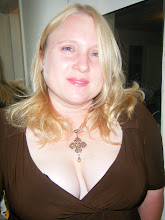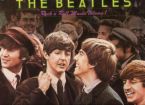It was a weeknight, sometime midweek. I was in the parking lot of a popular chain restaurant, checking out my best friend's new car. Her wings, one might say, to fly away with.
I've been spending quite of bit of time talking to this friend. She's been going through something, and yet she doesn't want to talk about it. She wants distraction. She wants something else to think about. We had been entertaining her mind with camp stories and wilderness adventure website discussion inside. Now it's time for her to go home, and she is not ready yet.
There was a wide expanse of lawn between her car and the nearby bank. We watched the children play in the grass, shooing them a safe distance away so that we could have more private conversation. In our parting words, we reveal the inner workings of our hearts. She tells me her worries and concerns for what lay ahead. Then she shuts down again and throws back into my court the burden of conversation. What else can I pull out of my hat....
So I tell her about this other thing that's been on my mind. I tell her about my latest late night obsession, which has been a little over the top, even for me. I was tired because I kept going down this odd internet road before bed. Some astrology thing that had my brain ticking. I kept getting frustrated because the hits were not working out - I wanted this particular kind of exchange from the experience and it hadn't been yielding it, and then suddenly I had hit jackpot. I found a website that said exactly what I wanted it to say, and yet, I didn't like the answers. It was like a pot of gold at the end of the rainbow that turned out to be fool's gold instead. I wasn't sure of its accuracy, so I turned it on its head and ran the reading another way.
I was comparing certain zodiac alignments involving myself and these people in my life. I would expected comparing these two individuals from this kind of dimension would yield radically different results. However, when I ran the "test run", on the former relationship, the answers came out eerily similiar. The stars were aligned in almost exactly the same way. The ten paragraphs were practically identical, actually, within about 80%. There was only slight differences in wording. I knew how this one on the second reading turned out, so it was somewhat ironic that it cast this one as the longer lasting relationship.
The differences between these two readings I would say were accurate, and it was these differences I was talking to her about now. There were about three. She agreed with me on what I told her it said, but then adding her own perspective.
"That is one good thing I can say about your ex," she said. "He always gave you the freedom to be who it is you want to be. Ultimately that is really important to you."
And to a large extent, that is true. My life was shaped by the forces of desire for freedom. It was part of the sympathy for the mustangs and little Wild Horse Annie trapped in a polio cast and longing to break free, let her spirit run unfettered, and her imagination as well caught up in the rumblings of the hooves of wild horses. I'd been talking of freedom for years and never really living it. Or was I. Did he give me that gift that no one else had been able to give.
And it was possible. I remember thinking that, actually, as a reason to justify remaining with him all those years. With him I was free to be myself, and he always accepted this about me, didn't influence me to change in any way. In his family, I had gotten acceptance I had never felt in mine, and that was important to me, in terms of personal growth. "I still think you guys weren't meant to be together, though," she added, and we agreed.
Later we come back to this same conversation. I was telling her these stories of dinner fiascos. How I had this same paralyzing feeling about cooking with these people in my life, and then when I do, there is some spice incident that throws a damper on the whole thing. Kind of a funny random memory of a garlic incident dinner in college I had forgotten to tell her about all these years. I am asking her about how it started out with her man, something I should know the answer to somehow but don't. We weren't hanging out a whole lot in this period of our lives, both in the budding of new significant relationships. She can't remember when that all happened for them. I never remembered having those kind of feelings with this ex. I tell her about how it was for us back then, how we would help each other make dinner, the stuff that was endearing about him back then but later would drive me nuts, like how he would go behind me and add more to the pan. Back in those early days, we were having fun with it. I don't remember having this kind of anxiety. She added that it all goes back to what she was saying that night after dinner. The anxiety wasn't there because there was nothing but acceptance.
When I think about what she is saying, I think about my reaction to my parents. My childhood friend likes to blame my "running off" with the ex on my negative reaction to my parents heavy handedness. She thinks I rebelled against the tyranny of oppression, and perhaps it was, in some way, but not that directly. It was probably this kind of general acceptance of who I was as an individual, and no attempts to change me, that drew me to him in the first place. Looking at it this way makes it seem like less of a sad thing, a regret thing, but rather an experience I was fated to have to learn to get over some of my issues with esteem, or learn how to deal with them.
In a way, I am glad we had these conversations now. This next week, I'll be dealing with some of the real consequences to the ending of a life together. I think thinking of him through this more favorable lens may make it easier to deal with the splitting up of a family household. We'll see what kind of peace that brings me in the days ahead.




























